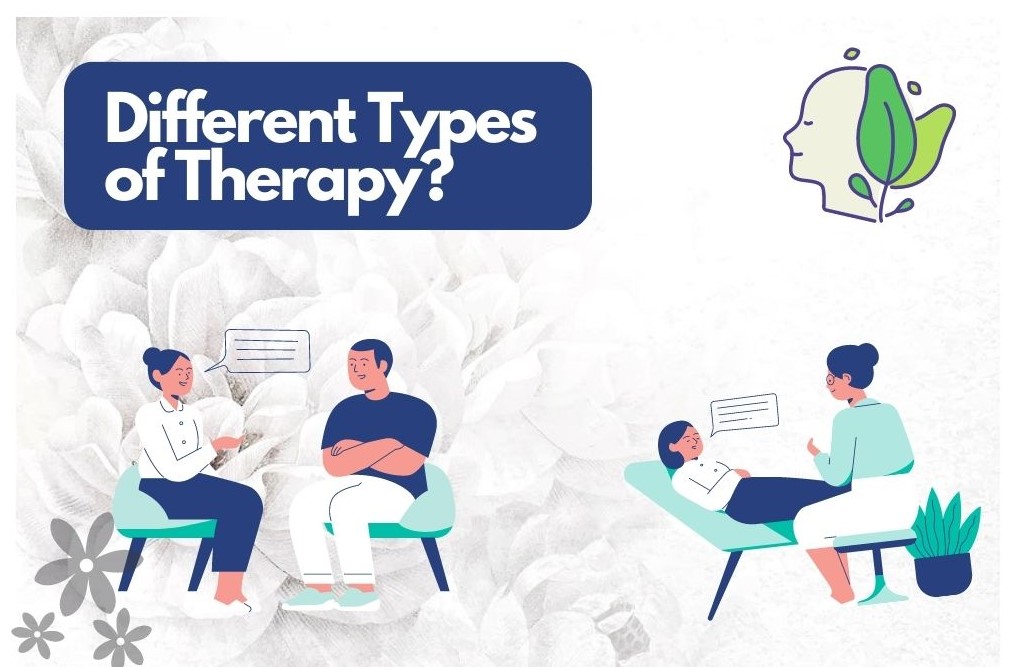Medically Reviewed By: Dr Mike Poku
Key Takeaways
- Therapy can be broadly categorized into in-person and online modalities, each with its advantages and drawbacks. Personal connection and non-verbal cues are hallmarks of in-person therapy, while online therapy offers convenience and anonymity.
- Four significant therapeutic approaches include CBT, focusing on thought-behavior connections; DBT, emphasizing emotional regulation; Psychodynamic Therapy, exploring unconscious processes; and Humanistic Therapy, championing self-exploration and growth.
Navigating the world of therapy can initially seem like venturing through an intricate maze. Each type offers unique techniques and benefits. The key is to find the approach that resonates with your needs and circumstances. Today we’re covering some of the more prevalent and commonly used types of therapy to determine which might be the most fitting for you. We dive deeper into four prevalent therapeutic approaches: CBT, DBT, Psychodynamic Therapy, and Humanistic Therapy.
In-person vs. Online Therapy
In-person Therapy: This traditional form of therapy involves face-to-face sessions with a therapist in a physical setting.
Pros:
- Personal connection is fostered through direct interaction.
- Non-verbal cues can be easily read, enhancing understanding.
Cons:
- Requires traveling to the therapist’s office.
- Some might find it intimidating or less private.
Online Therapy: As technology advances, online therapy has become a favorite for many. It involves video, voice, or text-based sessions.
Pros:
- Convenient, especially for those with mobility or geographical limitations.
- Offers a sense of anonymity which might be comforting.
Cons:
- Technical issues can sometimes hinder sessions.
- The lack of physical presence might reduce personal connection.
Cognitive Behavioral Therapy (CBT)
Fundamentals:
CBT operates on the premise that our thoughts (cognitive processes) significantly influence our feelings and behaviors. This therapy focuses on identifying distorted or unhelpful thought patterns and challenging them to foster healthier beliefs and actions.
Techniques:
- Thought Records: Clients track negative thoughts and identify patterns, helping to challenge and modify them.
- Behavioral Experiments: Testing beliefs by comparing predictions against real outcomes.
- Socratic Questioning: Therapists use open-ended questions to help clients explore and challenge their beliefs.
Best for:
Individuals experiencing depression, anxiety, PTSD, obsessive-compulsive disorder and other mood or behavioral disorders. Those who want a more structured therapy with tangible homework and practices often find CBT beneficial.
Dialectical Behavioral Therapy (DBT)
Fundamentals:
A subset of CBT, DBT focuses on emotional regulation and interpersonal effectiveness. It combines traditional cognitive-behavioral approaches with mindfulness strategies.
Techniques:
- Mindfulness: Being present and fully experiencing the moment.
- Distress Tolerance: Learning to manage and accept distress without resorting to destructive behaviors.
- Emotion Regulation: Understanding and managing intense emotions.
- Interpersonal Effectiveness: Building skills to communicate and relate to others better.
Best for:
Those struggling with self-harm tendencies, suicidal ideation, borderline personality disorder, or challenges in regulating emotions. DBT offers skills groups where clients can learn and practice techniques together.
Psychodynamic Therapy
Fundamentals:
Drawing its roots from Freudian psychoanalysis, psychodynamic therapy delves into unconscious processes and how past experiences, especially from early childhood, shape current behaviors and feelings.
Techniques:
- Free Association: Clients express thoughts without censorship, revealing hidden patterns or memories.
- Dream Analysis: Interpreting dreams to uncover unconscious desires or conflicts.
- Transference Analysis: Examining clients’ reactions towards the therapist to reveal unresolved past issues.
Best for:
Those looking to uncover deep-rooted, unconscious patterns affecting their present lives. It’s well-suited for individuals who believe past experiences significantly influence their current challenges.
Humanistic Therapy
Fundamentals:
With a focus on positive growth and self-actualization, humanistic therapy believes in individuals’ inherent worth and potential. It stresses the importance of self-exploration and self-understanding.
Techniques:
- Active Listening: Therapists provide a non-judgmental, empathetic ear, reflecting back clients’ feelings and thoughts.
- Unconditional Positive Regard: Offering acceptance and validation regardless of what the client shares.
- Gestalt Techniques: Helping clients integrate fragmented parts of themselves to feel whole.
Best for:
Individuals feeling lost, seeking purpose, or grappling with issues of identity and self-worth. It’s ideal for those looking for a non-pathologizing, optimistic approach to therapy.
Conclusion
MarkiTech contains a diverse portfolio of subsidiaries, each dedicated to digital health innovations. They emphasize telehealth, telemedicine and the establishment of virtual clinics, with a distinct mission: supporting seniors as they age at home while facilitating their caregivers.
Sensights.ai stands out for its emphasis on remote patient observation and solutions tailored for aging. By harnessing the power of artificial intelligence, it monitors patients’ health continuously, ensuring caregivers and patients are constantly connected and informed.
Meanwhile, Veyetals adopts rPPG and advanced AI-driven algorithms to gauge vitals on-the-go. It does this by analyzing the light reflection from blood vessels beneath the patient’s skin, allowing for non-intrusive and instant health checks.







